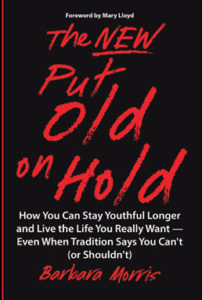

I was recently doing research on longevity and found there have been many studies done that show where people are healthiest and live longer. One includes a study from researcher Dan Buettner. If you’re not familiar with the term Blue Zones, head to www.bluezones.com to learn more. It was interesting to see 5 areas in the world (one being in southern CA) where people are thriving well into their 100’s. For all these cultures the key to living longer is a lifestyle. The commonalities are amazing.
Aside from diet, exercise and rest, several other social and lifestyle factors are common to the Blue Zones, and they may contribute to the longevity of the people living there.
These include:
- Being religious or spiritual: Blue Zones are typically religious communities. Several studies have shown that being religious is associated with a lower risk of death. This may be due to social support and reduced rates of depression. (1)
- Having a life purpose: People in Blue Zones tend to have a life purpose, known as “ikigai” in Okinawa or “plan de vida” in Nicoya. This is associated with a reduced risk of death, possibly through psychological well-being (2, 3, 4).
- Older and younger people living together: In many Blue Zones, grandparents often live with their families. Studies have shown that grandparents who look after their grandchildren have a lower risk of death (5).
- A healthy social network: Your social network, called “moai” in Okinawa, can affect your health. For example, if your friends are obese, you have a greater risk of being obese, possibly through social acceptance of weight gain (6).
We all want to live longer and have a wonderful quality of life. What’s interesting is dementia and Alzheimer’s are less common in these Blue Zone areas. When you think about how we age we can fall into the “senior culture” as Barbara Morris describes in her book The New Put Old on Hold. I personally see elders becoming more and more isolated from friends and family. With isolation comes a feeling of loneliness and depression. Accumulating evidence suggests that both humans and mice have a higher risk of developing Alzheimer’s disease if they are lonely or living isolated. (7)
Socialization is fundamental to our livelihood. In the Blue Zones one big commonality is socialization. The women cook meals together and families eat together keeping everyone connected and involved in conversation. The elders share life stories, so the younger generation has a sense of where they came from and they can carry the stories to their children and so on. Take a lonely elder out to lunch or shopping! It may be a life extender!
- https://www.ncbi.nlm.nih.gov/pubmed/27183175
- https://www.ncbi.nlm.nih.gov/pubmed/24815612
- https://www.ncbi.nlm.nih.gov/pubmed/26630073
- https://www.ncbi.nlm.nih.gov/pubmed/27001669
- https://www.sciencedirect.com/science/article/pii/S1090513816300721
- https://www.ncbi.nlm.nih.gov/pubmed/17652652
- https://www.ncbi.nlm.nih.gov/pmc/articles/PMC5764000/
——————————————————————————
Pat Garner holds certifications in Professional, Addiction & Recovery Coaching, is a Sedona Method Facilitator and a Certified Canfield Success Principles Trainer. Most recently, a number of her articles on addiction and wellness have been featured by the World Coaching Institute. She has earned the reputation as a dedicated leader and advocate of change.
During her own journey from addiction fifteen years ago, Pat discovered the world of holistic health and wellness that led to her adopt and promote a ketogenic lifestyle that has become an integral part of her mission to awaken people to their infinite potential so they can achieve lasting personal success in all areas of life. Pat invites reader comments and questions. Pat@PutOldonHoldJournal.com

Leave a Reply